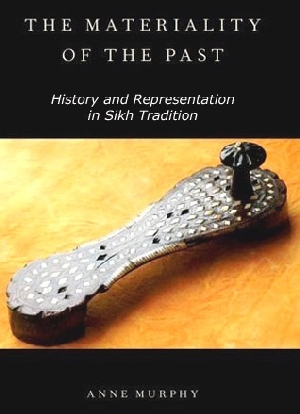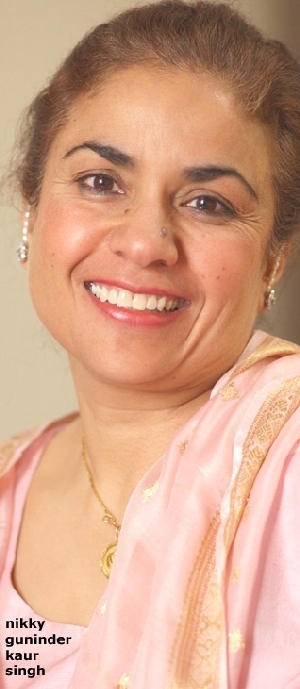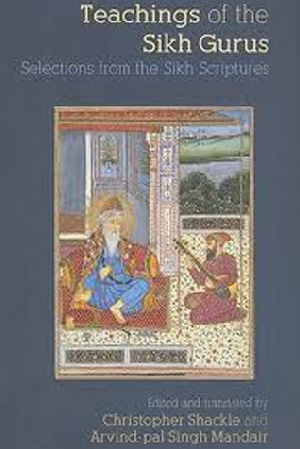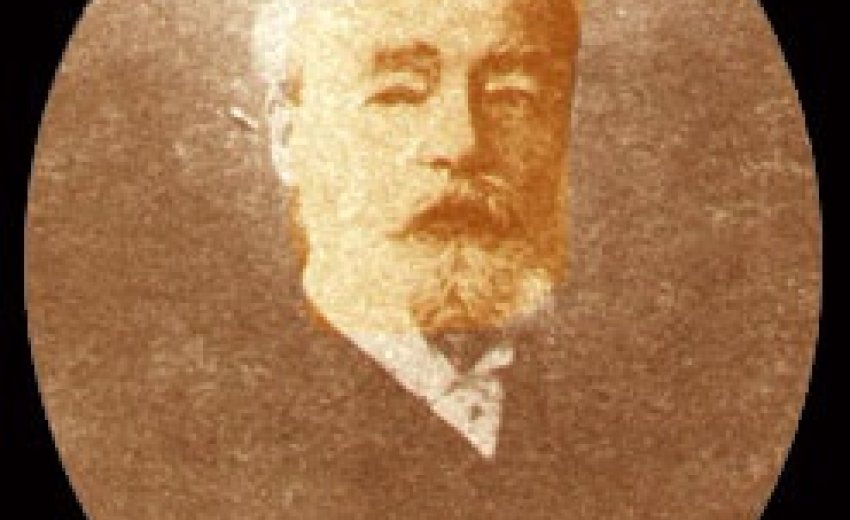| Representing Sikhism: A Centennial Conference in Honour of Max Arthur Macauliffe AGENDA & ABSTRACTS REPRESENTING SIKHISM: A Centennial Conference in honour of the Irish scholar Max Arthur Macauliffe (11 September 1838 – 15 March 1913) 15 March 2013, 2:00 pm ALL ARE WELCOME - Admission is Free Organized by the Study of Religions Department, School of Asian Studies, UCC, and made possible by the generosity of the Sikh community in Ireland through the Cork University Foundation. ######
ABSTRACTS This paper offers an outline of the life and times of Max Arthur Macauliffe (1838–1913), concentrating on his early life, with particular emphasis on his Irish background. He was born on 11 September, 1838 in Glenmore, Monagea, County Limerick, Ireland, and christened according to the rite of the Roman Catholic Church as ‘Michael McAuliffe’. He was educated locally and at what is now St Flannan’s College, Ennis, County Clare. He graduated from Queen’s College, Galway in 1860 and joined the Indian Civil Service in 1862, eventually becoming a judge. He was based in Amritsar where he developed a deep interest in the Sikh religion to which, it appears, he converted. He did what is regarded as the classic translation of the Guru Granth, the Sacred Scripture of the Sikhs, into English. His enormously influential ‘monumental’ six-volume work, The Sikh Religion, was published by Oxford University Press in 1909. He died in London one hundred years ago, on 15 March 1913. 2 M.A. Macauliffe and the Angst of the Translator “Had I known earlier the difficulties I should have to encounter, I should certainly never have undertaken a translation of this description,” wrote Macauliffe (Asiatic Quarterly Review, 1898, p.365). Even though he had carefully studied the text, familiarized himself with its source language(s), and was fluent in the target language, translating the Guru Granth into English proved to be an arduous task for the Irishman. His angst is indeed intriguing. Heidegger said, “Tell me what you think of translation, and I will tell you who you are,” so the concern voiced by our translator offers clues into his personal sensibilities and intellectual legacy. For his centennial celebration, I want to explore the synergy between Macauliffe’s existential response and his distinctive translation of the Japji, the opening hymn of the Guru Granth. 3 Placing Max Arthur Macauliffe in Context: Sikh Historiographical Traditions and Colonial Forms of Knowledge This paper embraces two different contexts that must inform our understanding of the work of M.A. Macauliffe. Firstly, the paper explores the ways in which Macauliffe's work -- presumably through his interaction with his interlocutors among the Sikhs -- reflects existing Sikh historiographical commitments. In this, we attempt to assess the work in relation to a range of existing works in Punjabi and, to a lesser extent, Persian, and determine the genealogy of its creation, in Sikh terms. Secondly, the paper addresses a central question in the historiography of modern South Asia: the relative influence of colonial forms of knowledge in the formation of South Asian subjectivities and texts in the period and, in particular, the differentials in power imbedded within the "dialogues" that produced texts like Macauliffe's. Assessment of these two seemingly contradictory contexts allows us to assess what was new -- and what was not -- in Macauliffe's representation of the Sikh past, and how we can assess the purportedly dialogical nature of the text within a broader field of power and knowledge. 4 Reaching out with Puran Singh One of the first Sikhs who sought to spread the message of the Gurus in English was Professor Puran Singh (1881-1931), whose unusual life embraced several changes of direction. As a young student in Japan, he rejected his Sikh heritage and became a sannyasi under the influence of the Hindu holy man Swami Ram Tirath, and it was only after later coming in close contact with his older contemporary, the great Sikh reformer Bhai Vir Singh, that he returned to his ancestral faith. Trained as a scientist, Puran Singh combined the practice of his profession with a lifelong passionate search for the experience of all-embracing spiritual realities. Besides focusing upon the poetic interpretation of the message of the Sikh Gurus, this search also led him to a strong identification with the poetry of Walt Whitman. The paper emphasises this spiritual dimension of Puran Singh’s remarkably large and varied literary output in both English and Punjabi, and suggests how its dynamism may have a continuing relevance for understandings of Sikhism in the modern world. February 22, 2013 |
   |
